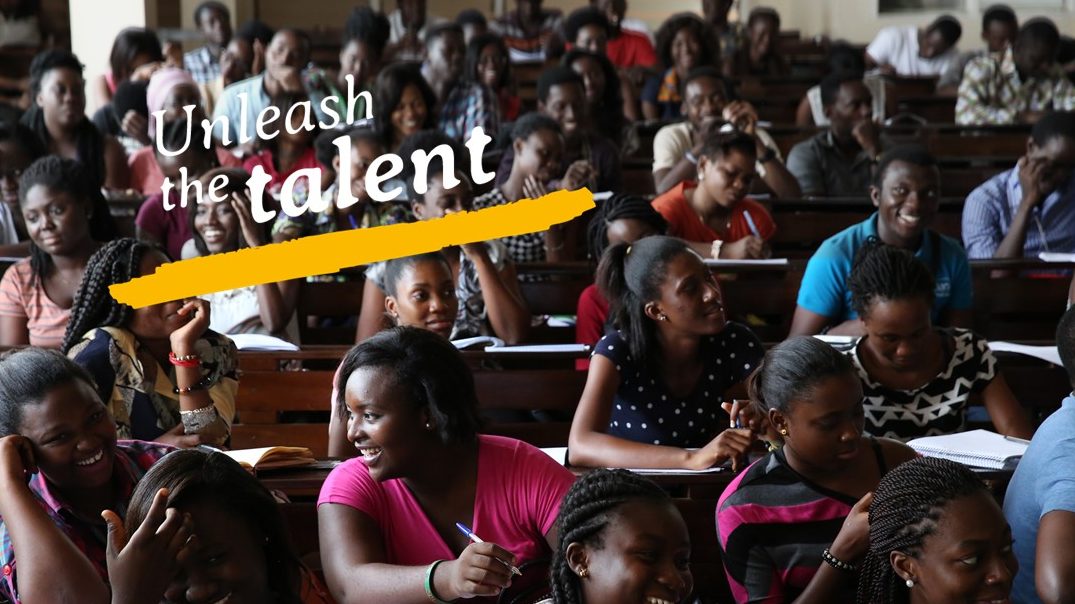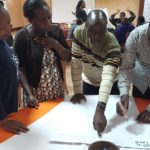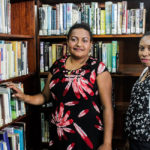
Equitable knowledge ecosystems – even more important during global crises
Knowledge and evidence are essential to find solutions that can address global challenges and transform lives.
This has been the founding principle of INASP’s work since our inception in 1992. Over the past year or so we have been reviewing and reworking our strategy, and were just about to launch it in March. Then COVID-19 arrived, the world turned upside down more or less overnight, and our vision of “research and knowledge at the heart of development” and our mission “to support Southern individuals and institutions to produce, share and use research and knowledge, which can transform lives” became even more urgent.
There have been huge and important investments in knowledge systems across the South over the last few decades and there are now a growing cadre of skilled and knowledgeable researchers, policymakers and practitioners. But as we look across these rapidly changing systems, we see serious inequities.
Most of the resources go to already well known and well-resourced academic institutions and national government agencies in capital cities. The voices of academics, practitioners and operational agencies who are working on real-world practical problems are not heard. Women and people from indigenous groups are excluded. There are inequities in who can create and produce new knowledge, in whose knowledge ‘counts’, how knowledge is shared, and who can access and make use of the results of research.
These inequities are evident at individual, organisational and systemic levels, and they undermine the establishment of the sort of sustainable knowledge ecosystems that are essential to address the national regional and global challenges facing humanity. We want all voices to be heard; we want all institutions to be equipped to facilitate useful research; we want all relevant high-quality knowledge to be available to decision makers to address national development priorities.
We believe that it is only through this kind of equitable knowledge ecosystem in which all of the talent can be unleashed that sustainable solutions can be found. This is the key idea underpinning our new strategy, and all of our work needs to contribute to this if we are to realise our vision of putting knowledge and research at the heart of development.
INASP has always emphasised working closely, collaboratively and equitably with our southern partners. But as a small organisation, working with our own partners on our own projects, we can only engage with a tiny fraction of this. We need to evolve beyond this. We need to find new ways of working with other individuals, organisations, projects, programmes, and southern governments also working on these issues in the South. In our new strategy we see ourselves as one organisation working as part of a global coalition of the many actors all over the world, and particularly in the South who are working to support knowledge and research. Learning and adaptation, another of our key principles, will be key to achieving this.
The COVID-19 crisis makes this even more urgent. The virus behaves differently in different countries and different responses are needed. Those responses must be designed and delivered by national researchers, policymakers and practitioners who have the best technical, social, and cultural understanding to know what might work.
There are many opportunities to explore new approaches to global collaboration. Lockdown in both Northern and Southern countries is accelerating the development and use of the digital skills, digital platforms and online collaboration that were already being described as the “Fourth Industrial Revolution”.
INASP has been supporting researchers and students in the South to navigate and harness new technology and data for years, and using technology enhanced approaches to supporting capacity development – allowing us to reach more people, at greater scale and with more flexibility. But it is critical that we continue to think carefully about inclusion, diversity and equity. Sustainable approaches to capacity development and equitable partnership are just as important in a digital environment.
For us the priority is people, not platforms. In order to avoid a new digital based divide, it is important to put learning first, and see technology as a means to an end.
Contact us. Let us know how we can best contribute to this global effort.
Going digital – What we have learnt about online capacity development approaches
Webinar: 26th May 14:30
Join us for a conversation with INASP’s team of digital learning experts, hosted by John Young, about effective online approaches to research capacity development in this moment of crisis.
Supporting online learning
In recognition of the challenges that Covid-19 presents we have created a package of freely-available self study courses to help researchers continue to produce, share and use research and knowledge, in support of national, and global development. These tutorials are all offered as an open educational resources, with no cost to participate or enrol.
Top image: Students at University of Ghana listen to their political science professor. Credit: Dominic Chavez/World Bank

 Previous Post
Previous Post Next Post
Next Post


